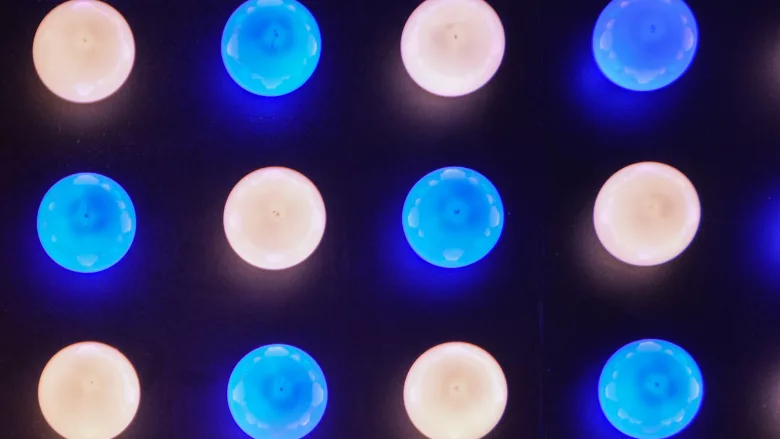Study to Examine Antimicrobial Efficacy of Blue Light in Food Processing Facilities

The U.S. Department of Agriculture’s National Institute of Food and Agriculture (USDA’s NIFA) has awarded a three-year, $599,900 grant to researchers at the University of Georgia (UGA) to study the antimicrobial efficacy of blue light technology. The researchers, from both UGA’s College of Agricultural and Environmental Sciences and UGA’s Center for Food Safety, hope to deliver an affordable and sustainable method for ensuring food safety.
Despite industry efforts, foodborne illness outbreaks have yet to be significantly reduced. However, the emergence of low-cost light-emitting diodes (LEDs) has invigorated interest in blue light technology as a way to reduce environmental contamination. Antimicrobial blue light has shown promising results when used to disinfect hospital surfaces, but little research has been done on blue light’s possible antimicrobial applications in controlling foodborne pathogens.
The UGA researchers postulate that antimicrobial blue light technology will be effective in disinfecting hard-to-reach areas in food processing and preparation facilities. Antimicrobial blue light may be effective in preventing biofilm formation and persistence, especially in areas that chemical sanitizers cannot thoroughly coat.
The study will focus on the effectiveness of antimicrobial blue light in combatting Listeria monocytogenes and Salmonella. The study will also examine the interaction of antimicrobial blue light with sanitizers to inactivate pathogenic biofilms. Research will involve inoculating various surfaces with pathogenic bacterial biofilms and viruses that will be treated with antimicrobial blue light. The study will begin in June 2022.
Looking for quick answers on food safety topics?
Try Ask FSM, our new smart AI search tool.
Ask FSM →









